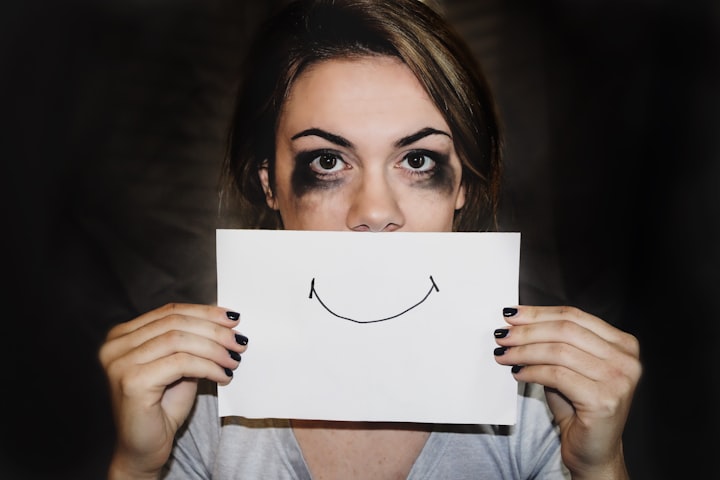How do cope with Anxiety and Depression?
Anxiety and Depression

Fear or frustration is a common and healthy response to stressful situations such as uncertainty management or a serious medical problem. However, some people have very serious concerns and often worry about situations or events. Long-term coping strategies can help prepare for stressful situations and situations.
According to the National Center for Complementary and Inclusive Health, incorporating meditation into your life can help to deal with anxiety. Studies have shown that mindfulness programs such as the Depression Meditation Program (MBSR) are effective in reducing anxiety and depression. Breathing meditation is a form of breathing meditation to deal with daily anxieties and concerns.
In addition to medication and treatment, there are several natural remedies to alleviate anxiety and create a calm atmosphere. This can work well for people who do not want to take their medication, do not take it regularly, or who want to deal with their medication or treatment regimen.
Seek help If anxiety is severe or the symptoms do not work, seek professional help. People who want to manage their anxiety naturally should not stop taking the medication without consulting their doctor.
The doctor can help diagnose the person with symptoms and, if necessary, refer them to the mentally ill person. Your doctor can also help you find out if the condition can be treated. Once you have been diagnosed, you can draw a plan of action.
With anxiety and depression, like any other illness, you need a way to cope and get better. Life changes such as spending time with supportive friends and family, getting regular exercise, getting enough sleep, eating a healthy diet, and cutting down on alcohol and other drugs are appropriate changes that reduce symptoms of anxiety or depression.
A variety of ways to deal with common symptoms of anxiety can help, whether you are experiencing stressful times at home or at work, or you are facing specific challenges that make you anxious. Once you have identified a source of stress or anxiety, you can take steps to avoid it, or at least control your emotions. Knowing the causes can help, and you can discuss them with others and seek their support if needed.
Read on to learn more about effective ways to deal with anxiety. Pinterest meditation, breathing exercises, and shortness of breath are all ways to deal with problems that can help people deal with anxiety. If you are not sure where to start, it may be helpful to discuss these options with a psychiatrist who can suggest what you should and should not think about.
Too much caffeine can clog blood vessels and raise blood pressure, which can contribute to anxiety. If you experience anxiety or panic, sweating, tremors, dizziness, heart palpitations, or nausea, deep, slow breathing can help your body and mind calm down, says Psychology Today.
People suffering from anxiety and depression have a variety of experiences - some with minor symptoms of the disease, and others with anxiety and depression. It is rare for people with depression to experience anxiety symptoms such as panic, irritability, and sleep disturbances. Anxious people can also become depressed and low in energy and lose interest in life.
Symptoms of anxiety include feelings of anxiety or fear of impending disaster, which can be so severe that it interferes with your ability to work, maintain relationships, or sleep well at night. If your anxiety is focused on the situation, such as fear of an upcoming event, you may have symptoms that will last a short time and subside after the event. Ask for Your Thoughts Negative thoughts can focus on your mind and distort the seriousness of the situation.
Fear can feel like an overwhelming sense of failure. This fear may be difficult to grasp, and as a result, many people do not know how to help the sufferer.
While it can be frustrating to watch your loved one suffer from anxiety and anxiety every day, there are things you can do to help them. No one should suffer alone with anxiety or depression, not even for a while.
According to the National Alliance on Mental Illness, some 40 million American adults suffer from anxiety disorders. Anxiety disorders are manifested by feelings of anxiety that go beyond worrying about everyday things like work or school problems or fighting changes in life.
Each anxiety disorder has its own treatment and coping strategies. In this article, we will consider the different types of fears that can be overcome and how they can be overcome. We will also think about how we can overcome daily fears and deal with times when everyone feels more anxious than usual.
Many types of anxiety can be treated with psychotherapy such as cognitive behavior therapy (CBT), psychotherapy, and medication. There are a variety of ways to treat the most common symptoms of anxiety.
If you are taking other medicines, be sure to discuss your remedies with your doctor. Call your medical doctor or psychologist and ask for appointment options to talk about your anxiety and depression. Contact the Employee Assistance Program or your employer for advice and request the referral of mental health professional.
Keeping your body and mind healthy, exercising regularly, eating a healthy diet, getting enough sleep, and keeping in touch with the people who care for you are the best ways to avoid symptoms of anxiety.
About the Creator
saurab sharma
Hello there, I am a content writer and a freelancer,





Comments
There are no comments for this story
Be the first to respond and start the conversation.